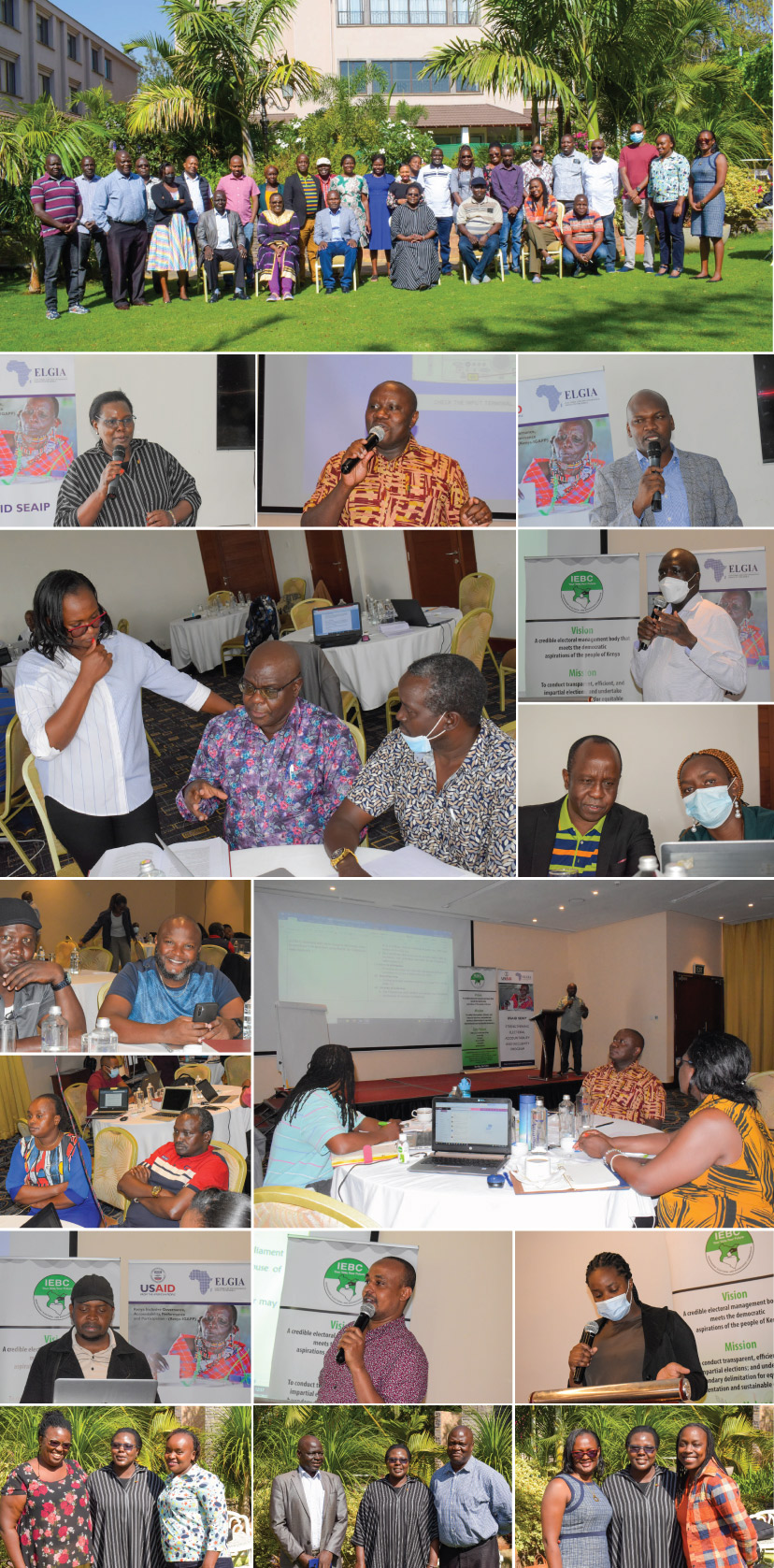
The Independent Electoral and Boundaries Commission (IEBC) is developing requisite enabling regulations to operationalise provisions in the Elections Act and the Political Parties Act in preparation for the 9th August 2022 General Election.
The Commission, through the Directorate of Legal Services with support from the Electoral Law and Governance Institute for Africa (ELGIA), held a working retreat between 14th and 20th March 2022, to review the existing electoral regulations and draft proposals for amendment.
While officially opening the workshop, the Chairperson of the Legal and Compliance Committee, Commissioner Irene Cherop Masit, appreciated the commitment exhibited while emphasising on the urgency at hand to ensure that all necessary legislative preparatory processes are completed ahead of the polls.
Commissioner Masit observed that legal reforms are continuous activities often pegged on gaps, inconsistencies and ambiguities of existing laws, judicial pronouncements and emerging jurisprudence around elections.
On his part, the Director Legal Services, Mr. Chrispine Owiye, called on participants to undertake their responsibilities with a tooth comb to ensure each and every piece of legislation is thoroughly and satisfactorily handled. He was upbeat that the outcome of the workshop will go a long way in enhancing regulation of the election process to the primacy of better election management in 2022 and beyond.
During the workshop, participants were appraised on the status of legislative reforms and an overview of recent judicial pronouncements that have an impact on the electoral process. The workshop further discussed the proposed amendments to the Election Act under the Elections (Amendment) Bill, (National Assembly Bill No. 3 of 2022) and the recently enacted Political Parties Amendment Act, 2022 with a view to identifying areas for review emanating from the proposed and effected amendments.
Legal reform is a process that diagnoses causes and consequences of deficiencies in laws and involves consultations and discussions amongst those who implement the laws and those who make the laws so as to enrich the process, particularly in technically complex areas of the electoral process.